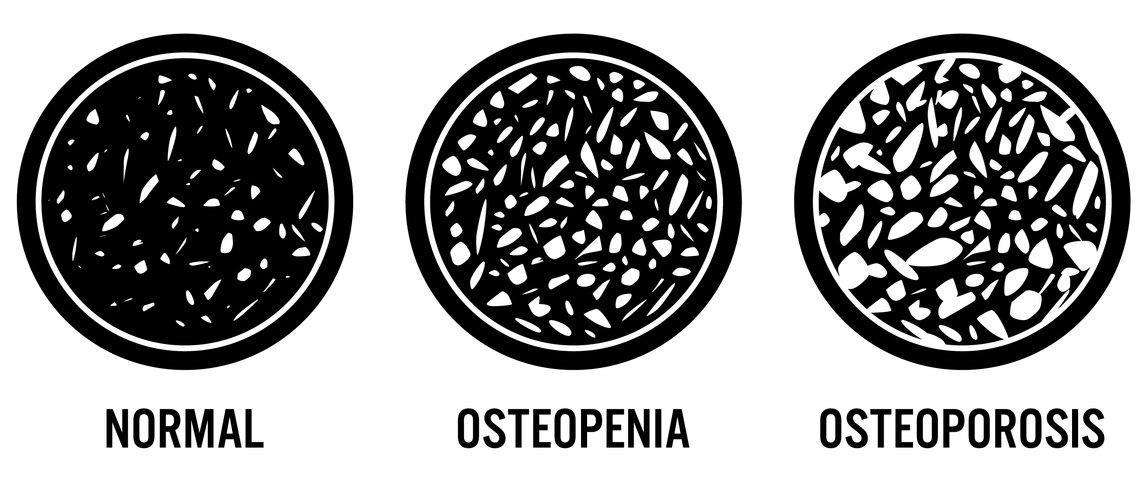Bone mineral density testing

Bone mineral density testing. There are several different tests your medical provider may use to measure your bone density. The most common ones:
1.DXA (Dual Energy X-ray Absorptiometry), sometimes called a Dexa scan is a test that measures the density of the bone of your spine, hip or your total body. If your health care provider orders a DXA, you might want to ask what body parts your particular test will measure.
2.PDXA (Peripheral Dual Energy X-ray Absorptiometry). This test measures bone of your wrist, heel or finger.
3. SXA (single Energy X-ray Absorptiometry) measures the density of bone in your wrist or the heel of one foot.
4. QUS (Quantitative Ultrasound) uses sound waves to measure bone density at the heel, shin bone and kneecap.
5. QCT (Quantitative Computed Tomography) is frequently used to measure the density of your spine, but can be used at other places also. If this test is ordered, do ask if it is being used for your spine or some other other body part.
6. PQCT (Peripheral Quantitative Computed Tomography) is another test that measures the bone density of your wrist.
7. RA (Radiographic Absorptiometry) uses an X-ray of the hand and a small metal wedge to calculate bone density
8. DPA (Dual Photon Absorptiometry), like the DXA listed above, measures the spine, hip or even your total body
9. SPA (Single Photon Absorptiometry) measures the density of the bones in your wrist
My response to so many different bone mineral density tests
That is a lot of different tests. What is encouraging is that there are now alternatives for persons who want to limit their radiation exposure. This could include those who have had radiation therapy at some time or some one whose job or residence generates some radiation exposure. (Too much radiation is NOT good for our health or longevity.)
I have found it useful to know that there are many different bone density measurement tests. Bringing a list of them with me to my medical appointment, showing the list to my health care provider and asking her that given my health history which of the tests would s/he recommend and WHY is something I do any time I expect that bone density may come up during a visit.
I usually do a bit of reading about each type of test before I meet with my health care provider, so I am in a position to ask questions (Example. Will this affect my xxxx? Would a different test be better for me given my health history.....and why?
Yes, I ask about all medical tests before I have them...but especially Bone mineral density testing. Because I have had cancer, I want to avoid as much exposure to radiation as I can. But also, I want a test that is known to be accurate.....and I want to know about any potential side effects and what preparation, if any, is necessary before the test.
I admit. There was a time when I just nodded at whatever my physician suggested but as I have aged, I have grown to realize that I need to do more self advocacy. The days of my youth when it was normal to see only a single physician who cared for me and all the members of my family - often for years on end, are over. Today's doctors are busy...they see many more clients and most are associated with physician groups that dictate 'average time per patient.'
Then, too, most of my physicians are younger than I am. There are many diseases they no longer encounter, example polio. But I had some of those diseases, including polio, and I live with after effects - often some invisible to the naked eye. Unless I speak up...ask questions...offer comments...even comments about how a proposed treatment could affect my present lifestyle, my physician can not serve my health care needs well.
And that goes for Bone mineral density testing as well as any other health care procedure. I encourage you, too, to speak up and become an active partner in your health care....including bone mineral density testing.
If you wish to review another page on this topic click on: bone mineral density testing
